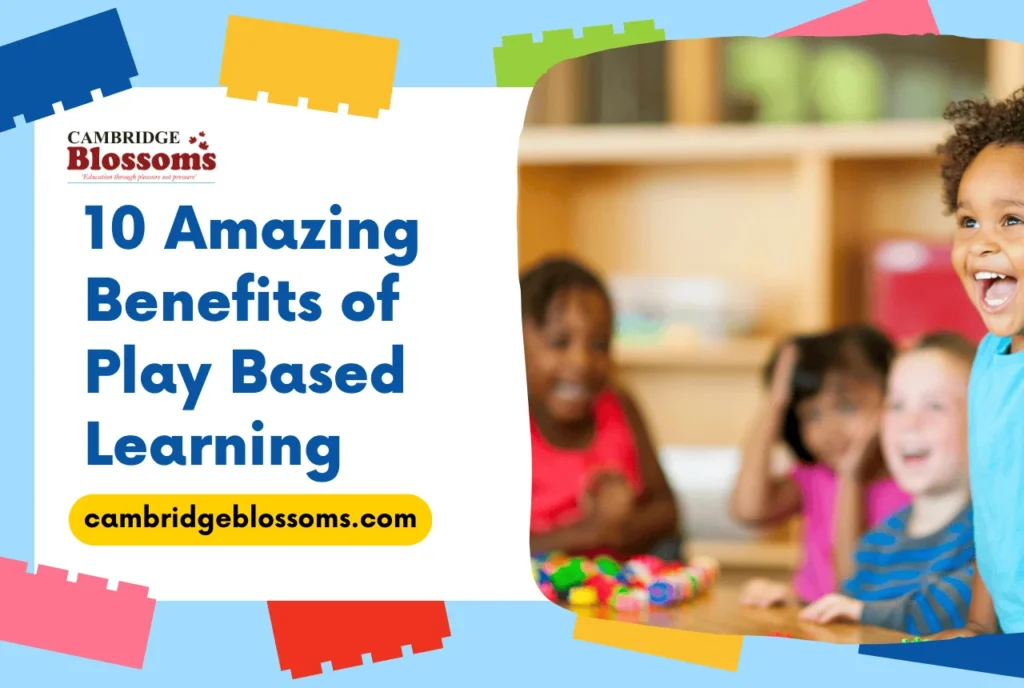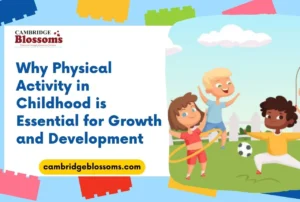Want to know the benefits of play based learning? Play based learning has become a cornerstone of early childhood education, focusing on the idea that children learn best through play. Unlike traditional teaching methods that often emphasize memorization, this approach encourages curiosity, creativity, and active participation. It’s about letting children explore the world around them, make discoveries, and learn at their own pace.
This method focuses on academics and also nurtures every part of a child’s development, including their social, emotional, and physical growth. With more schools adopting play-based learning, parents, teachers, and even policymakers need to understand how impactful it can be in shaping a child’s future. This guide highlights the benefits of play based learning and how it can support your child’s growth and development.
Benefits of Play Based Learning
Play based learning offers incredible advantages that go beyond the classroom. Studies show that children who learn through play perform better in academics and life skills. They develop sharper minds, stronger friendships, and better emotional understanding. Let’s dive into the key benefits of this approach and why it’s gaining so much attention.
By understanding the true value of play-based learning, we can help children thrive in their early years and prepare them for lifelong success.
10 Amazing Benefits of Play Based Learning
1. Enhanced Cognitive Development

Play based learning is a powerful tool for developing critical thinking and problem-solving skills. Activities like building blocks, puzzles, or role-playing games challenge children to think creatively and logically. These activities encourage them to experiment with ideas, find solutions, and make decisions, which are essential skills for their academic and personal growth.
2. Improved Social Skills

When children play together, they learn how to share, cooperate, and resolve conflicts. Group activities, like pretend play or team games, teach them to work together toward a common goal. They begin to understand the importance of taking turns, listening to others, and respecting differences. These social interactions help them build lasting friendships and create a strong foundation for teamwork.
3. Emotional Regulation
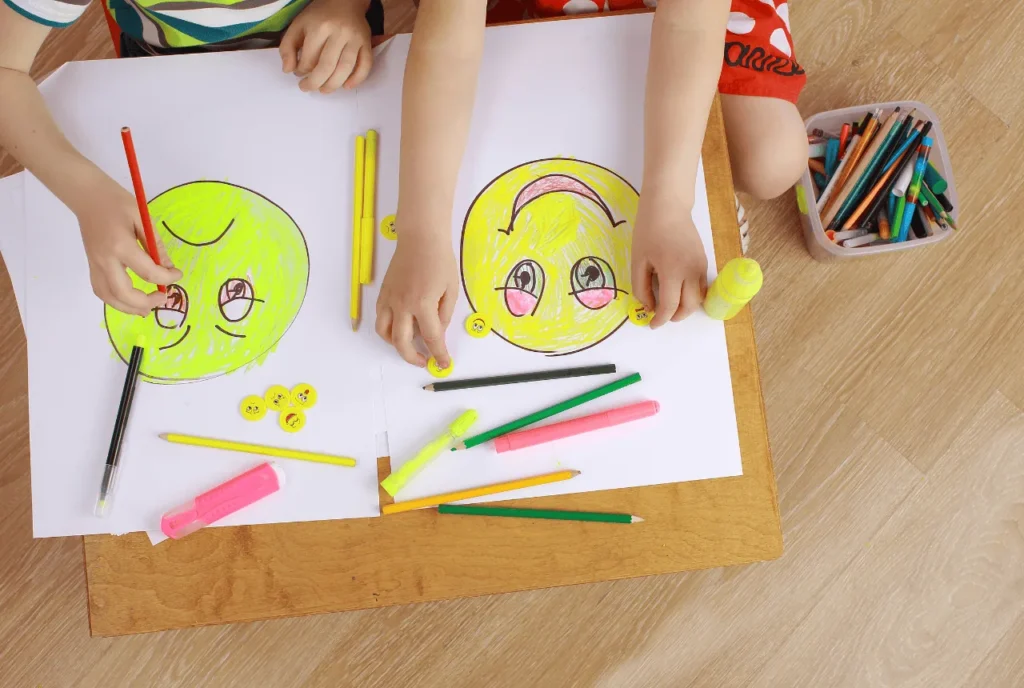
Play allows children to explore and express their emotions in a safe environment. Whether they’re pretending to be a superhero or navigating a game with friends, they learn to manage feelings like frustration, excitement, or disappointment. This helps them build emotional intelligence, resilience, and the ability to handle real-life challenges calmly.
4. Language and Communication Skills
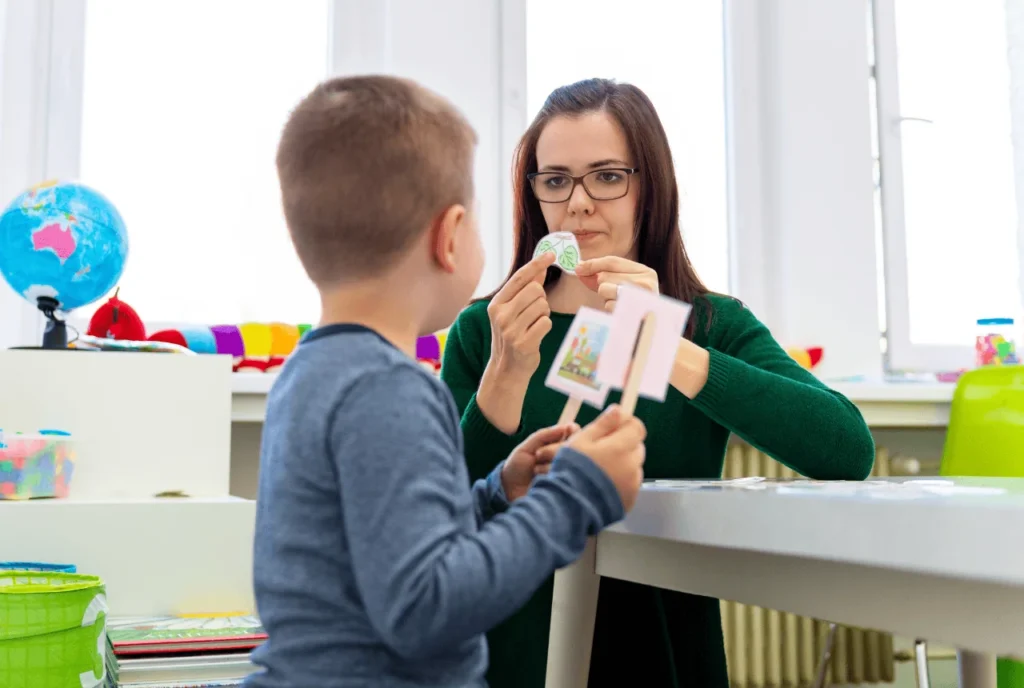
Interactive play naturally encourages children to talk and listen, improving their vocabulary and communication abilities. Conversations during play—whether it’s with peers, parents, or teachers—help children learn new words, express their thoughts, and ask questions. For example, role-playing games often involve storytelling, which is a fun way to build strong language skills.
5. Creativity and Imagination
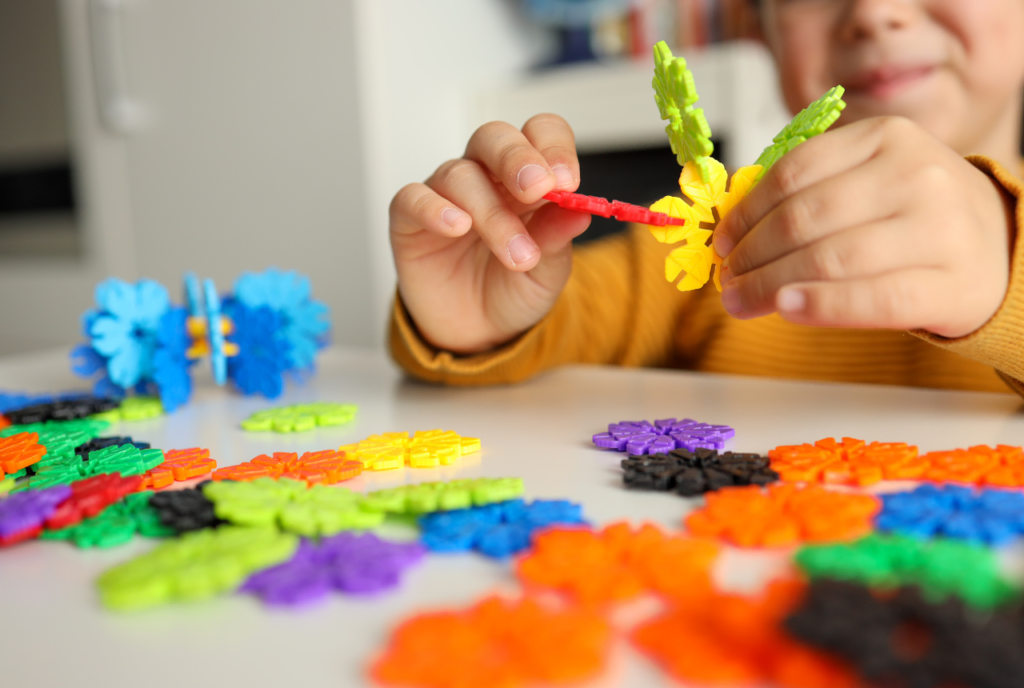
Unstructured play lets children explore their imaginations and think outside the box. Whether they’re building a castle out of blocks or pretending to be a doctor, they engage in creative problem-solving and innovative thinking. These experiences spark curiosity and allow children to explore new ideas freely, which can lead to greater innovation in later stages of life.
6. Physical Development
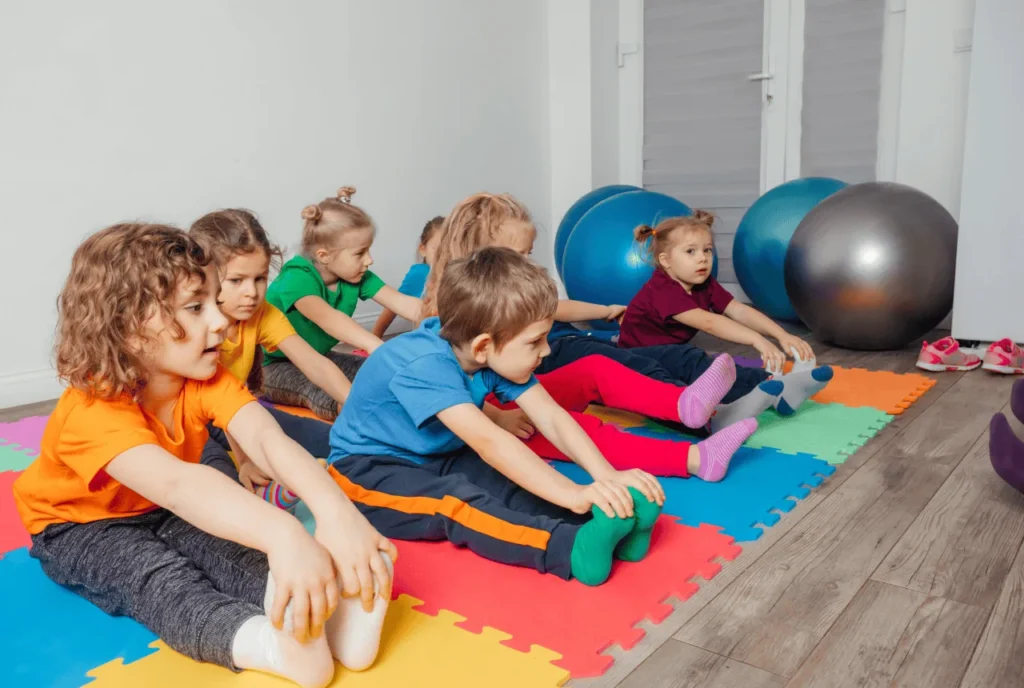
the other benefit of Play based learning is great for the body too! Activities like running, climbing, or dancing improve gross motor skills, while tasks like drawing or threading beads enhance fine motor skills. Physical play helps children develop strength, coordination, and balance, all while keeping them active and healthy.
7. Love for Learning

When learning is fun, children develop a natural curiosity and excitement for discovering new things. Play-based activities create a positive association with education, making children more eager to explore the world around them. This early love for learning lays the groundwork for a lifelong passion for acquiring knowledge.
8. Individualized Learning
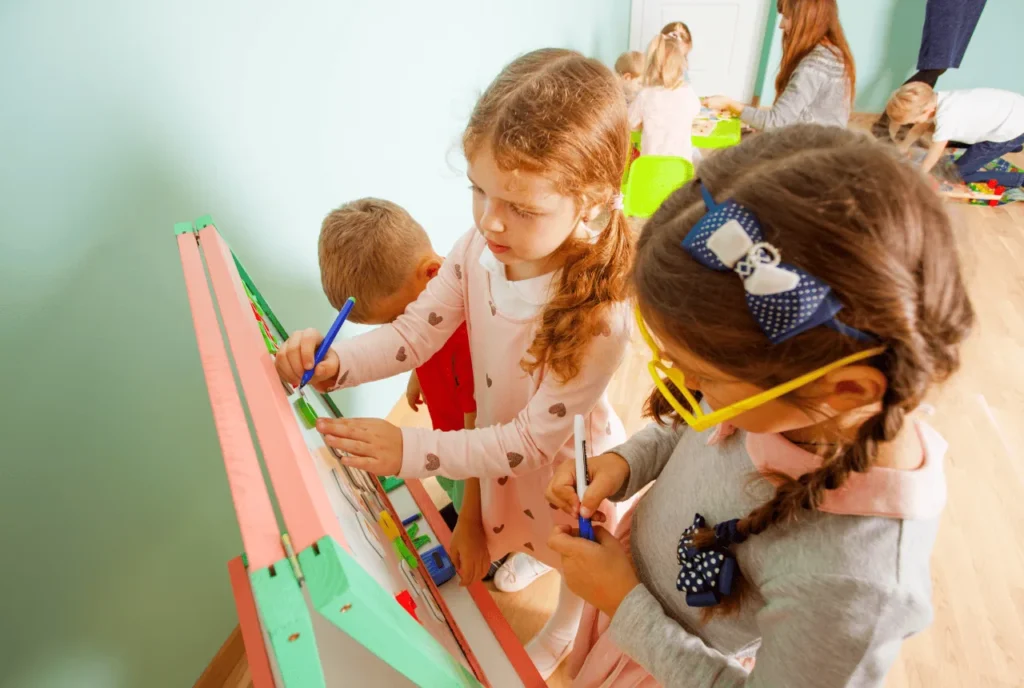
Every child learns differently, and play-based learning embraces that. Through open-ended activities, children can learn at their own pace and in their own way. For instance, one child might enjoy building structures, while another might prefer exploring colors through painting. This flexibility helps each child grow in a way that suits their unique interests and abilities.
9. Resilience and Problem-Solving Skills

Play often involves overcoming challenges, whether it’s solving a puzzle, building a tower that keeps falling, or figuring out how to win a game. These moments teach children persistence and adaptability. They learn that mistakes are part of the process and develop the confidence to keep trying until they succeed—an invaluable skill for real-life situations.
10. Parental Engagement

Play-based learning doesn’t stop at school; parents can play an active role too! Joining children in their play strengthens family bonds and allows parents to guide and support their child’s learning journey. Simple activities like playing board games, reading stories, or building something together can create wonderful memories while reinforcing key skills.
Play-based learning isn’t just about having fun; it’s a holistic approach to helping children grow into happy, confident, and capable individuals. By encouraging play, parents and educators can unlock a child’s full potential in every area of development.
Cambridge Blossoms: A Leading Example in Play-Based Learning
Cambridge Blossoms is recognized as one of the best preschools in Guwahati, Assam, effectively implementing play-based learning methodologies. The school emphasizes a curriculum that prioritizes joy and exploration over traditional teaching methods. Their approach allows children to learn through discovery and interaction with their environment.
Parents have shared success stories highlighting the positive impact of Cambridge Blossoms on their children’s development. Testimonials reflect significant improvements in children’s social skills, emotional regulation, and overall enthusiasm for learning since enrolling in the program.
Conclusion
The benefits of play-based learning are profound and essential for children’s development across multiple domains. By fostering cognitive growth, social skills, emotional intelligence, physical coordination, and a love for learning, play-based education prepares children for future success.
Parents and educators are encouraged to embrace this vital component of early childhood education by exploring quality options like Cambridge Blossoms for enriching educational experiences that prioritize holistic child development.

